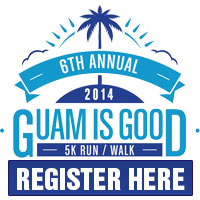Community
Protect Yourself From Liver Cancer:
- Get hepatitis B vaccination
- Lead a healthy lifestyle
- Minimize your consumption of smoked, cured and salted foods.
- Eat well-balanced, nutritionally adequate diets.
Detecting Liver Cancer:
- Early stages of cancer can be asymptomatic and may go undetected for months or even years. When symptoms do develop, they are most pronounced as pain.
- Pain associated with cancer is a result of several possibilities: invasio or destruction of cells; stretching of internal tissue by tumor growth; pressure of tumor on an organ; blockage of a vital passageway by the tumor; and infection caused by cancer.
- Other symptoms may include loss of appetite, loss of weight, fever of unknown origin, limb weakness, sensory loss, or an absence of tendon reflexes in the limb.
- Liver cancer, both primary and metastamic, often exhibits symptoms of general malaise as well as pain and tenderness. The discomfort is usually of a moderate degree and most often in the upper or more advanced cases, symptoms of jaundice, may appear yellowing of the skin and eyes, may also appear.* * From the Liver Cancer Network Website
Coping with Cancer
- Be gentle with yourself. Be careful not to get angry at yourself for all these emotions. They are natural reactions.
- Learn to tell others what you need. Family, friends and physicians often take their cues from patients.
- Don't be afraid to ask for support.
- Take good care of yourself. Fill your days with activities that are important you, but don't overextend yourself physically.
- Educate yourself. Often what you imagine causes greater fear than the facts.
- Be positive and proactive. Take charge of your health and medical care.* *From the American Institute for Cancer Research.
The Cancer Information Services
The Cancer Information Services is a Program of the National Cancer Institute and is the nation's leading source of cancer information and education for patients, their families, health professionals, and the general public.
People from Guam and CNMI can also call by phone toll free, Tuesdays through Saturdays, from 5:00 a.m. to 12:30 p.m., to the CIS to speak with a Cancer Information Specialist. The toll free phone number is: "1-800-4-CANCER" or 1-800-422-6237.
Office Location:
The Cancer Information Services
UOG Cancer Research Center,
Dean's Circle, House #7, Mangilao
Website: www.cancer.gov
**From Angelina Mummert, Cancer Information Service Partnership Program Coordinator



